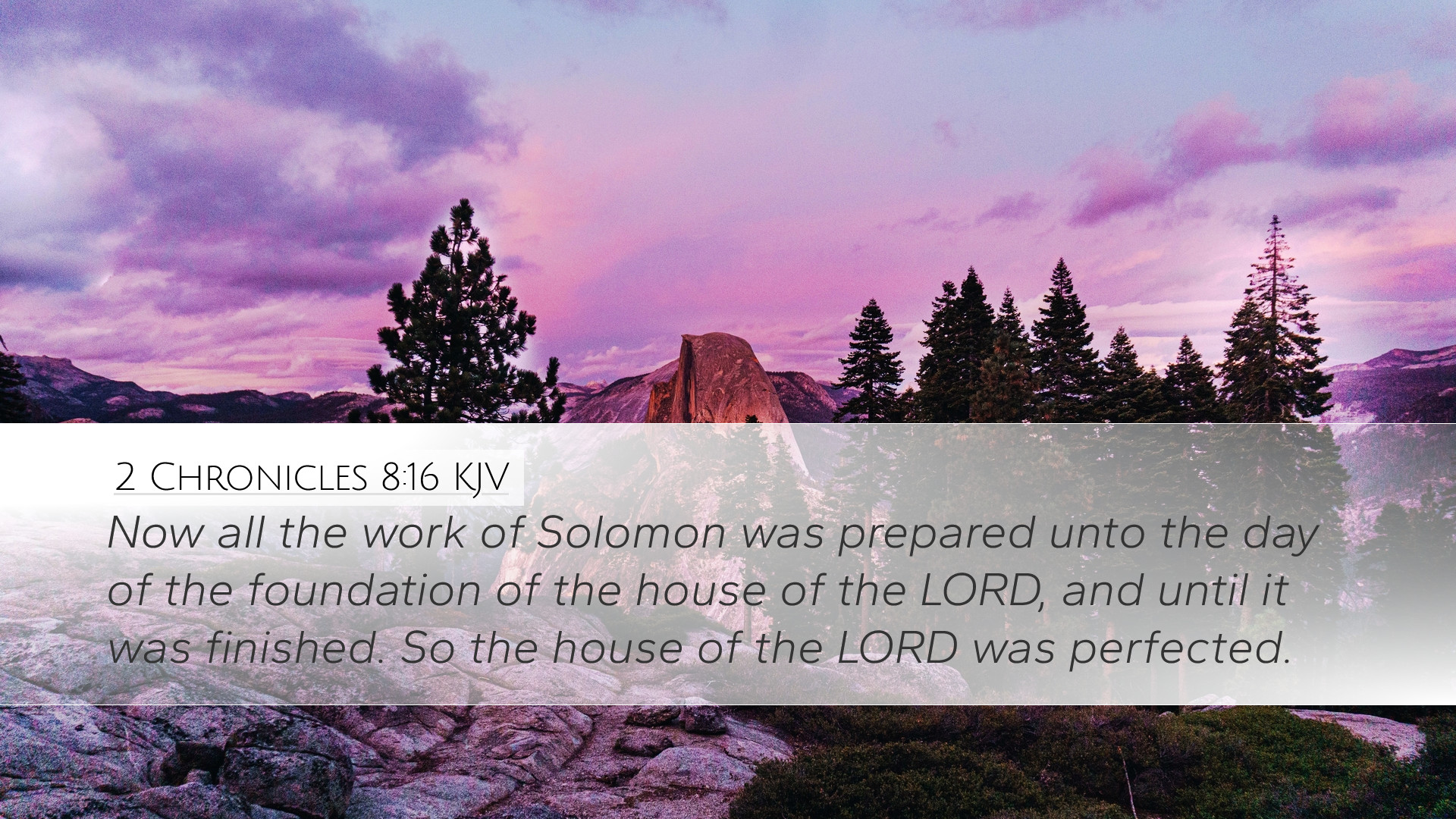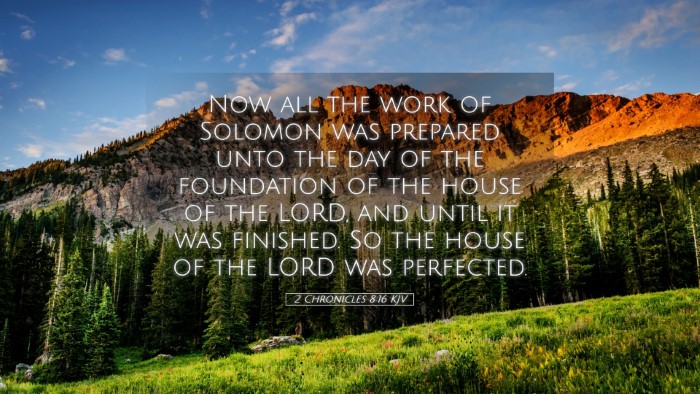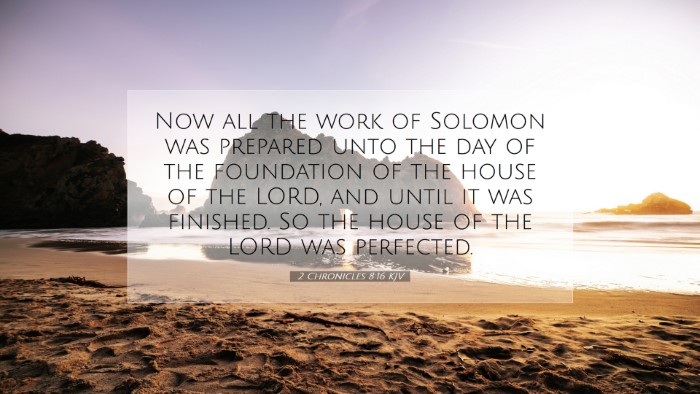Commentary on 2 Chronicles 8:16
Verse: "Now all the work of Solomon was prepared unto the day of the foundation of the house of the LORD, and until it was finished. So the house of the LORD was completed." (2 Chronicles 8:16)
Introduction
This verse encapsulates a significant moment in the biblical narrative, providing a transition from the preparation phase of Solomon's temple to its completion. The construction of the temple represents not only an architectural endeavor but also a deeper theological statement about God's presence and the worship of Israel. Different commentaries elucidate various dimensions of this verse.
Matthew Henry’s Commentary
Matthew Henry begins his analysis by emphasizing the depth of Solomon's dedication to the project of the temple. He notes that all preparations were meticulously made until the work reached fruition. Henry suggests that this reflects Solomon’s commitment and honor to God, indicating that he did not take lightly his responsibility to create a house for the LORD.
- Commitment: Solomon's dedication illustrates a model of diligent and faithful service to God that ministers and believers should emulate.
- Divine Timing: Henry points out that the completion of the temple occurs in accordance with divine timing, emphasizing that God's plans unfold at the right moment.
- Community Involvement: He also highlights the necessity of community involvement in significant projects, reflecting how the entire nation contributed to this sacred work.
Albert Barnes’ Notes
Albert Barnes provides additional insight, particularly regarding the significance of this construction phase. He inspects the implications of the temple being "completed" and relates it to the fulfillment of covenant promises.
- Fulfillment of God's Promises: Barnes asserts that the completion of the temple symbolizes the fulfillment of God’s promises to David about having a permanent dwelling for His Name.
- Significance of Worship: He notes that the temple became the center for worship in Israel, providing a physical representation of God’s presence among His people.
- Architectural Significance: Barnes describes the architectural magnitude of the temple, suggesting it was not merely a building but a holy site meant to reflect the glory of God.
Adam Clarke’s Commentary
Adam Clarke adds depth to the understanding of this verse by exploring the cultural and historical context. He examines how the temple's construction served as a pivotal aspect of Israelite identity.
- National Identity: Clarke posits that the temple was foundational to Israel's national identity, serving as a physical and spiritual anchor for the people.
- Legacy of Worship: He also discusses how the legacy of the temple shaped generations of worship practices and theological reflections within the Israelite community.
- Symbolism of Holiness: Clarke emphasizes that the temple symbolizes holiness and the need for a sacred space where humanity could encounter the divine.
Theological Reflections
This verse invites theological reflection on several themes that are critical for pastors and theologians:
- God's Presence: The temple marks the intersection of heaven and earth, where divine presence meets human worship. This challenges pastors to consider how their communities embody the presence of God today.
- Preparation and Commitment: The diligence in preparation depicted in this verse serves as a model for church leadership, emphasizing that thorough preparation reflects a deep respect for God’s work.
- Completion and New Beginnings: The act of completion heralds new beginnings in the life of the community, encouraging believers to anticipate the fresh works God may initiate within their midst.
Practical Applications
From the insights of these commentaries, several practical applications can be drawn:
- Leadership in the Church: Leaders should exhibit dedication and perseverance in the tasks entrusted to them, mirroring Solomon’s commitment.
- Community Engagement: Encouraging communal efforts in both spiritual and practical projects can enhance unity and participation in the church’s mission.
- Worship as a Priority: Just as Solomon prioritized the temple, modern believers should consider worship a central aspect of their lives and community, ensuring it reflects the holiness of God.
Conclusion
The complexities and insights distilled from 2 Chronicles 8:16 reveal the richness of the biblical text and its relevance to the life of faith today. As pastors and scholars engage with this verse, they are reminded of the care and devotion necessary to cultivate a deeper relationship with God, urging their communities to likewise pursue the holiness and presence of God fervently.


